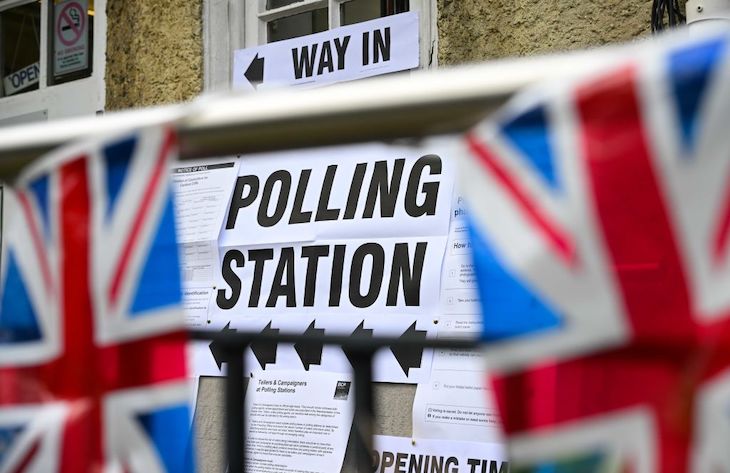You might have thought that a heavy defeat for the Conservatives in the local elections would silence those claiming that the government was out to disenfranchise left-wing voters by introducing compulsory photo ID for voters at polling stations. But not a bit of it.
Paul Mason was up bright and early bleating about ‘serious vote suppression’; the Mirror is reporting voters were leaving polling stations ‘in tears’ after turning up without their ID. And a professor of accounting practice at Sheffield university, who also described himself as an ‘economic justice campaigner’, tweeted that this was ‘the first reversal of the right to vote since 1832’.
That is not the view of Peter Stanyon, chief executive of the Association of Electoral Administrators, who said this morning that the elections passed off ‘without any major issues’ – in spite of some reports of people being turned away. The Electoral Commission will conduct a study over the coming weeks to measure how many people found themselves unable to vote, and suggest changes which might be made.
There is no reason to suppose that the changes have favoured one party over another
Contrary to what the critics assert, no-one is being disenfranchised – obviously. All that happened yesterday was that a practice which is routine in most European countries, and which has been exercised in Northern Ireland for the past 20 years, was introduced to British elections. Moreover, there was a lot of research to make sure that it was not going to disadvantage any particular group.
A wide variety of photo ID were accepted, including bus passes, and they didn’t even have to be in date. For the two per cent of people who have no ID, councils were obliged to offer a specific certificate entitling the holder to vote. The rules were well advertised, and in case no-one noticed them beforehand, they were printed on polling cards distributed a month ago. While it is inevitable that any change to elections will catch people out – some no doubt find themselves thwarted every time a polling station is relocated – there is no reason to suppose that the changes have favoured one party over another.
The idea that the demand for photo ID disenfranchised young voters disproportionately doesn’t stand up: a study by IFF Research, commissioned by the government in order to prepare for the change, found that 18-29 year olds were the most likely to hold photo ID: 99 per cent did. Among the over 70s, it was 98 per cent. The same applies to allegations that the new rules discriminate against ethnic minorities – research has found that Black and Asian voters were less likely to lack the necessary ID. While the Electoral Commission has previously said that it received a lower-than-expected number of applications for voter ID, it said that this applied to voters aged over 75 as well as those aged under 25 – the first group of which has tended more likely to vote Conservative in recent elections and the latter Labour.
How ironic that some of those bleating about this issue were among the loudest to condemn Donald Trump for his – equally silly – claims to have been cheated in the 2020 presidential election. As for the claim that voter ID is not important because there are only small numbers of voters committing impersonation, it is bunk. The police investigated 595 cases of alleged voter fraud after the 2019 general election. The fact that there were few convictions means nothing: just how would police prove a case of impersonation without CCTV footage? Photography and filming at polling stations is banned.
Why would any political party want to be against putting in simple guards against electoral fraud, as Labour did bitterly? Indeed, now we have survived an election with voter ID, let’s tackle other forms of voter fraud – which is encouraged through poor record-keeping.
Last election, my son presented the three polling cards he had been sent, covering student addresses where he had lived over the previous few years (he only used one card). There seemed to be no cross-checking. There have been issues with postal votes, too. Our streets are full of CCTV cameras, we are demanded biometric data for many things. But when it comes to voting, for too long the electoral process failed to employ proper safeguards against fraud. What happened yesterday was just a small corrective.







Comments